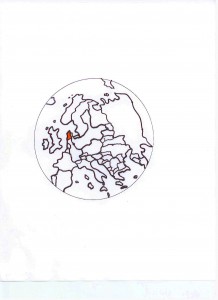DENMARK
A. THE COUNTRY
Denmark is the most southerly of the Scandinavian countries in northern
Europe. The country consists of a large peninsula and many islands.
The government is a stable parliamentary democracy and constitutional
monarchy. The strong economy is founded on a large service sector,
environmental innovation, agriculture/fishing and light industry. The
social security system requires high taxes. In the past few years,
Denmark has been ranked as having the highest level of income equality,
the best business climate, one of the least corrupt countries, and the
second most peaceful country in the world.
B. THE PEOPLE
The population is ~5,482,000 and official language Danish.
~92.2% are Danish citizens (Danish, Faroese, Greenlander), ~7.8% Foreign
(European, Middle Eastern and Asian, African).
C. RELIGIONS AND CHRISTIANITY/PENTECOSTALISM
The Lutheran Church is recognized as the national church and is
supported out of a state-levied church tax. Over 80% remain members
despite the fact that 50% are reported to be agnostic or atheist.
Church attendance is around 2%.
85.29% claim to be Christian, ~9.81% Non-religious, ~4.1% Muslim, ~0.4%
Buddhist, ~0.21% Hindu, ~0.1% Jewish, ~0.05% Chinese, ~0.04% Baha’i.
In the Christian category:
~87.31% are Protestant, ~2.8% Unaffiliated, ~0.66% Catholic, ~0.05%
Anglican, ~0.03% Independent.
Evangelicals represent ~3.5% of the population.
Charismatics represent ~1.5% and of those ~0.4% are Pentecostals.
Groups originating in Western society considered ‘marginal’ represent
~0.43% of the population.
Donna Siemens
References:
http://en.wikipedia.org
Operation World, Jason Mandryk. Colorado Springs: Biblica Publishing, 2010.

